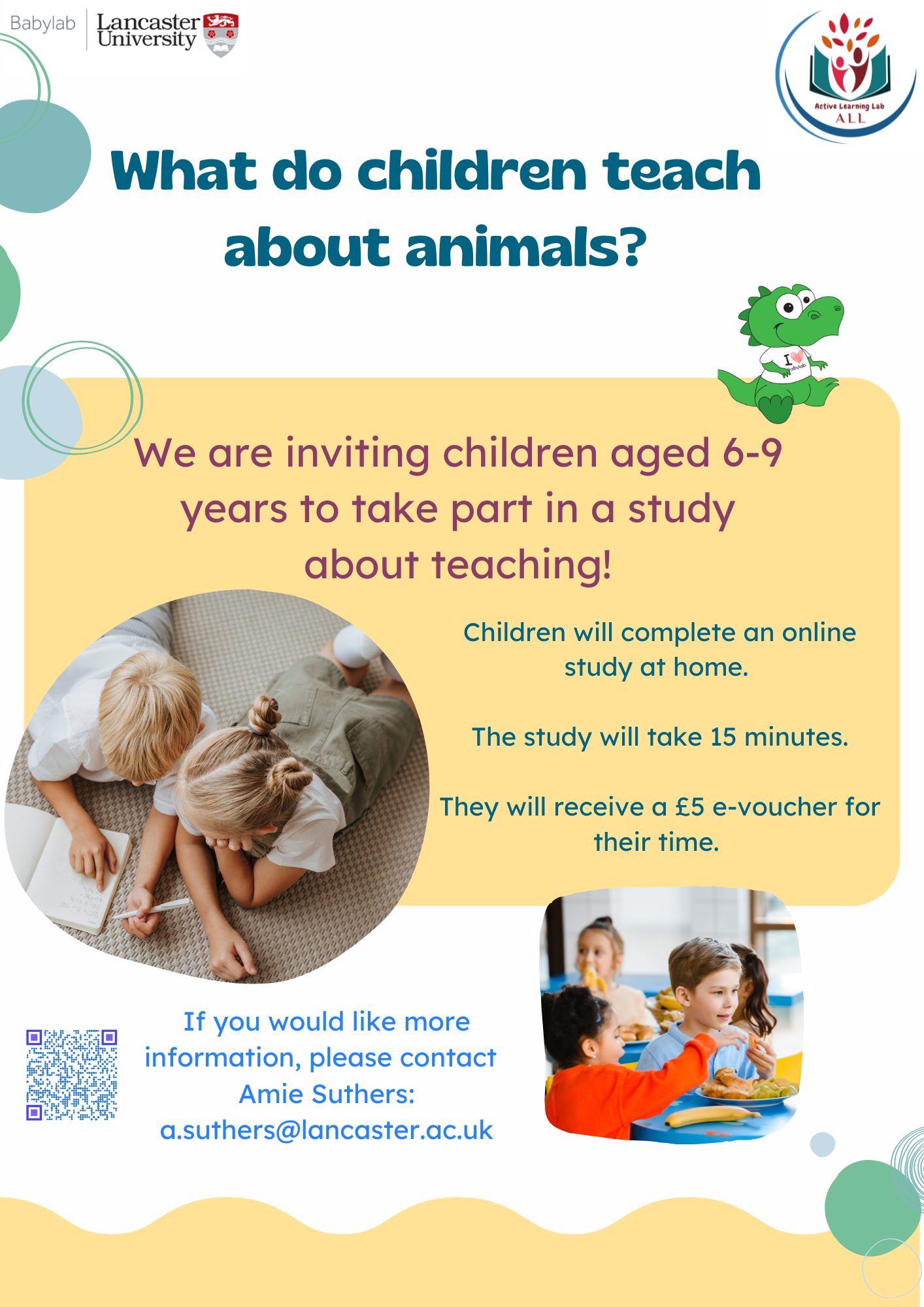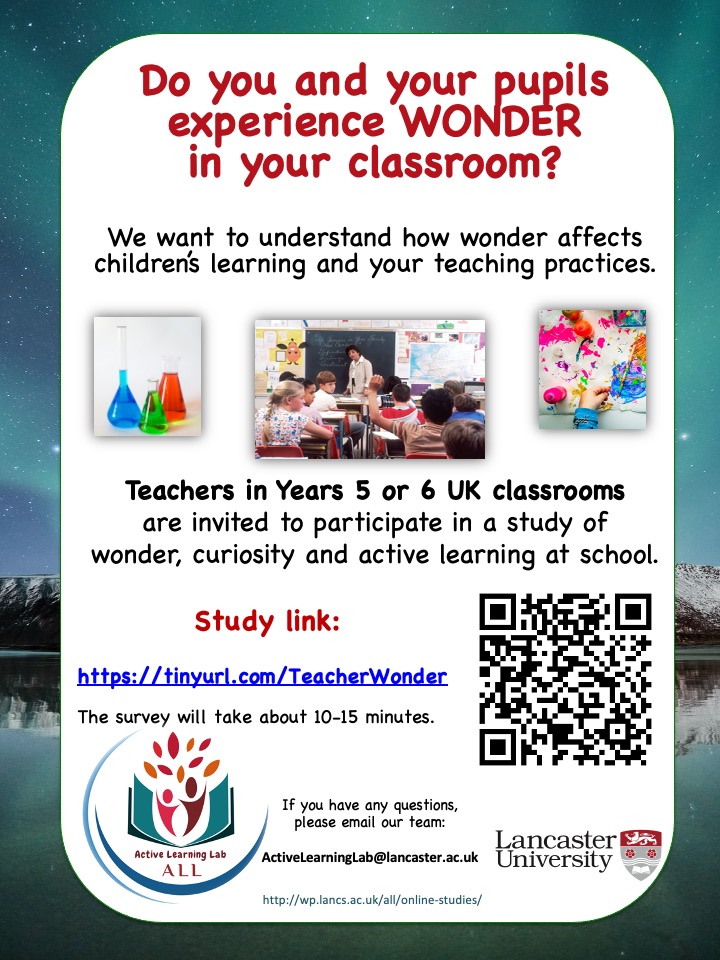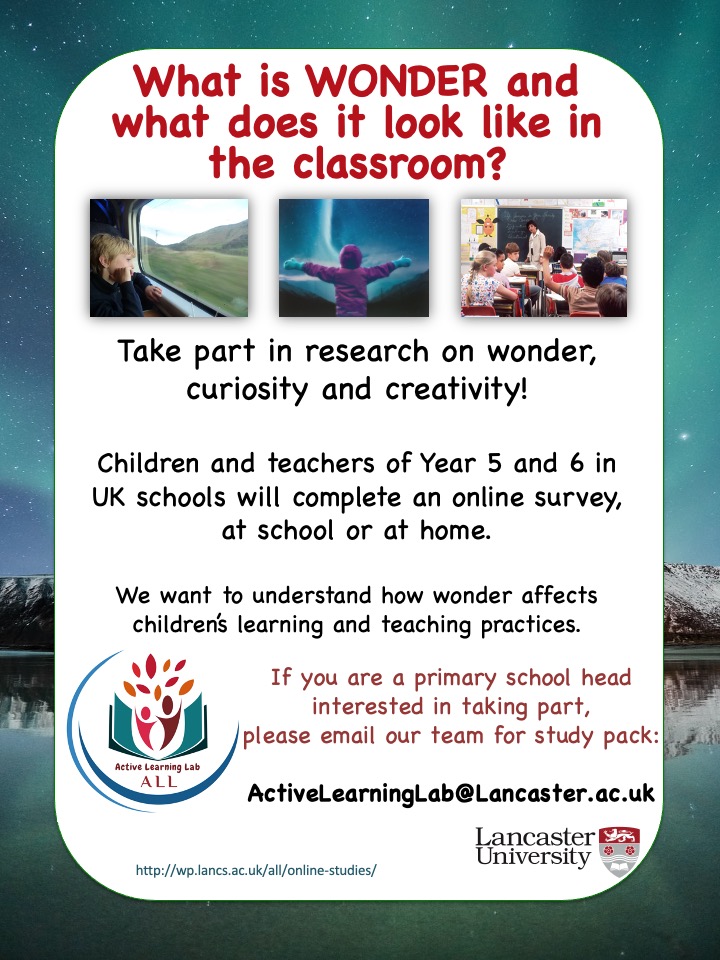Daphne and Marina ran an engagement event with children from Reception to Year 6 classes at the STEM week held at the Quernmore CofE primary school. Daphne spoke about what it is like to do psychological science, which methods we use in developmental research at the Babylab and Active Learning Lab, and offered interactive activities and lots of opportunities for asking questions and sharing experiences. We thank the school and children for hosting us!

Author: Marina Bazhydai
ManyBabies collaborations – new pre-prints
Members of the lab have contributed to two large-scale international collaborations:
A Unified Approach to Demographic Data Collection for Research with Young Children Across Diverse Cultures is available as a pre-print here.
Here, we argue for an added emphasis on collecting detailed and high quality demographic data in developmental research and propose ways to do that.
ManyBabies 5: A large-scale investigation of the proposed shift from familiarity preference to novelty preference in infant looking time – pre-print here.
This is Registered Report proposing an investigation of the Hunter-Ames model of infant preferences for visual stimuli of different novelty and complexity.
Elena and Didar present at BCCCD’23
Elena Altmann and Didar Karadag presented their research at the Budapest CEU conference on cognitive development.
Elena presented her work on infants’ curiosity: Individual Differences in infants’ Exploration Styles within a novel, gaze-contingent Paradigm.
Didar presented on her work with toddlers: Selective teaching in development: preferential information transmission following direct instruction and independent exploration in 2-and 5-year-olds
and older children: Selective teaching: Do children transmit generalizable or specific information to naïve social partners?
Blog post on information transmission research progress
ALL’s long-term RA, Amie Suthers, has written a blog about her summer internship funded by LuCiD network experience working on projects looking at children’s active information transmission. You can read about these studies in progress and Amie’s experiences in the lab here.
New paper published!
Our new open-access publication entitled, Investigating the effect of synchronized movement on toddlers’ word learning, is out in Frontiers in Psychology journal. We studied toddlers’ learning following a synchronous vs asynchronous interpersonal music and movement-based activity to learn if being in-sync with someone enhances learning outcomes. Contrary to our prediction, no such effect was detected, raising several explanations and exciting future directions.
New commentary article published
Marina and Didar published a commentary in Behavioral and Brain Sciences: Can bifocal stance theory explain children’s selectivity in active information transmission where we review the literature on children’s selective teaching in ontogeny and argue that it is a crucial piece of the puzzle to explain the complexity of social learning.
New grant awarded on children’s selective teaching!
Active Learning Lab has been awarded a research grant to study how children share information with others. The grant is funded by the British Academy/Leverhulme Small Research Grant scheme and is entitled, Selective teaching: do children transmit generalizable or specific information in health and non-health related contexts.
We are excited to start data collection on the first study – please visit the study page if you have a child aged 6-9 to take part in an online study.
Take part in study on children’s information sharing!
What information do children share with others?
We invite children aged 6-9 to take part in an online study taking place online from one.
We are interested in what information kids choose to share with others. Your child will learn several new facts and then have an opportunity to teach someone else.
The study will take place via a secure live meeting with a researcher on MS Teams and last about 10-15 minutes.
Your child will receive a thank you e-voucher for their participation.
Pleases get in touch with us if you’d like to sign up via:
ActiveLearningLab@Lancaster.ac.uk

School study on Wonder
Thank you for your interest in our research on Wonder!
We are looking for UK primary schools interested in helping us understand how children experience wonder in daily life, and how schools can help foster wonder in their classrooms.
We are specifically looking for Year 5 and Year 6 pupils and teachers to take part who will be asked to complete an online survey. Participation for children will take approximately 30 minutes and includes questions, stories and videos to understand wonder, curiosity and creativity. Participation for teachers will require about 15 minutes of their time.
As a school, you can sign up to have the study run at the school during the school day, or to distribute study information to pupils’ caregivers instead so they can do it from home. We would greatly appreciate your involvement in either case! If you run the study during the school day, we will also be able to send your school a thank-you gift of your choice in the set amount.
Please get in touch with our team by emailing us at ActiveLearningLab@lancaster.ac.uk for details and to discuss your options. We look forward to hearing from you!
New online study for Teachers in Year 5 and 6 UK classrooms
We are excited to invite teachers in UK’s Year 5 and 6 classrooms to take part in a short online questionnaire to understand how experience of wonder and curiosity affects their pupil’s learning and their teaching practices.


